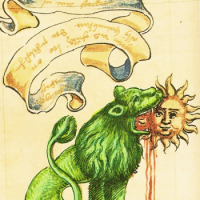訊息: 13
語言: English
KStef (顯示個人資料) 2015年8月18日下午8:20:45
My thoughts are:
Estas bonege - It's very good (to live there, to be here, to see you again)
Estas bonega - it's very good (that food, your hair, my dog)
Maybe in east/south Slavic langs.
Estas bonege - It's very good (to live there, to be here, to see you again)
Estas bonega - it's very good (that food, your hair, my dog)
like the dummy tio in "tio ke", or antau ol), it's very likely a Slavic feature.Yes, the first one, but I've never heard something like 'antaux ol'.
Maybe in east/south Slavic langs.
Alkanadi (顯示個人資料) 2015年8月19日上午9:47:06
erinja:"Bonege" implies that the situation of owning the car is awesome. "Bonega" refers ONLY to the car itself being awesome, every situation surrounding it would be "bonege".Okay. Thanks. I have a follow up question. Why is Mojosa use in an adjective form? Do people say Mojose?
An exclamation of "bonega" would be rare, "bonege" would be the standard.
mbalicki (顯示個人資料) 2015年8月19日下午12:20:54
Alkanadi:Why is Mojosa use in an adjective form? Do people say Mojose?They do.
 Again, matter of using an adjective vs an adverb, both as a single-word expression, is a matter of nuance: adjective implies one's commenting on a thing (which is discussed or acted upon in that situation) and adverb implies one's commenting on an action (which is discussed or performed in that situation).
Again, matter of using an adjective vs an adverb, both as a single-word expression, is a matter of nuance: adjective implies one's commenting on a thing (which is discussed or acted upon in that situation) and adverb implies one's commenting on an action (which is discussed or performed in that situation).When your friend performed a pretty neat trick on his BMX you could say mojose referring to how cool the trick was or mojosa referring to the trick itself. When you're watching a comedy show and there was a gag you liked, you could say mojose referring to how funny the characters interacted or mojosa referring to how funny the situation was.



